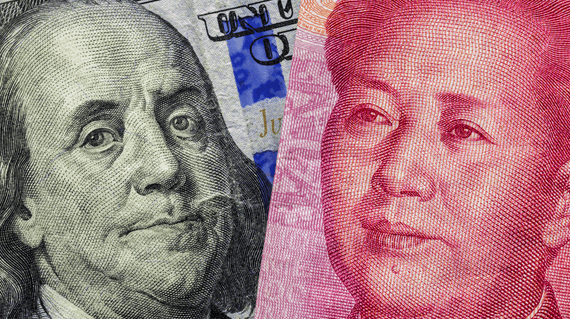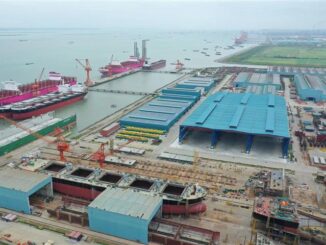
A fact sheet posted on the White House website this week announced that U.S. President Joe Biden is directing his trade representative to increase tariffs under Section 301 of the Trade Act of 1974 on $18 billion of imports from China “to protect American workers and businesses”.
According to the sheet, Biden is “directing increases in tariffs across strategic sectors such as steel and aluminum, semiconductors, electric vehicles, batteries, critical minerals, solar cells, ship to shore cranes, and medical products”. The move follows an “in-depth review” by the United States Trade Representative, the fact sheet outlined.
In 2024, the tariff rate on certain steel and aluminum products under Section 301 will increase from 0–7.5 percent to 25 percent, the tariff rate on electric vehicles under Section 301 will increase from 25 percent to 100 percent, the tariff rate on ship to shore cranes will increase from 0 percent to 25 percent, and the tariff rate on solar cells, whether or not assembled into modules, will increase from 25 percent to 50 percent, the fact sheet announced.
The tariff rate on lithium-ion EV batteries will increase from 7.5 percent to 25 percent in 2024 and the tariff rate on lithium-ion non-EV batteries will increase from 7.5 percent to 25 percent in 2026, according to the sheet, which revealed that the tariff rate on battery parts will increase from 7.5 percent to 25 percent this year.
The tariff rate on semiconductors will increase from 25 percent to 50 percent by 2025 and the tariff rate on natural graphite and permanent magnets will increase from zero to 25 percent in 2026, the sheet pointed out. The tariff rate for certain other critical minerals will increase from 0 to 25 percent in 2024, it added.
In a release sent to Rigzone, Xeneta, which describes itself as the leading ocean freight rate benchmarking and intelligence platform, said global supply chains are braced for further disruption and increasing costs after Biden announced new tariffs on Chinese imports.
“The new tariffs under President Biden may be a case of history repeating,” Peter Sand, the Chief Analyst at Xeneta, said in the release.
“If so, businesses will be braced for increasing supply chain costs and ultimately it will be U.S. consumers who pay for it,” he added.
“Back in 2018, we saw the U.S. under President Trump impose a wide raft of tariffs on Chinese imports. China retaliated by imposing increasing tariffs of its own and this constant trading of blows saw ocean freight container shipping rates from China to the U.S. West Coast increase by more than 160 percent,” he warned.
Sand noted in the release that rates began to fall away again towards the end of 2018 as the situation calmed but added that they never returned to the same level, “meaning a new status quo was established in the market at a higher cost level”.
Sand pointed out in the release that he believes businesses may look to alternative supply chain routes into the U.S. as a result of the latest move by the Biden administration.
“The ocean freight container market has seen incredible increases in demand from China into Mexico and the latest U.S. tariffs could see this rapid growth continue,” he stated in the release.
“In a purely hypothetical scenario, at the current growth rate, by the year 2031 there will be more containers imported from China into Mexico than the U.S. West Coast,” he added.
“We may also see U.S. shippers look to import goods from nations such as Vietnam as an alternative to China – as has increasingly been the case since the 2018 tariffs hike hit the market,” he continued.
“However, these are immature supply chain routes compared to the established Transpacific trade direct from China to the U.S. West Coast. This means more complexity, more volatility, and increased cost,” Sand warned.
Sand noted in the release that ocean freight shipping routes from China to the U.S. East and Gulf Coast are still being hampered by restrictions in the Panama Canal.
“The next best alternative is the Suez Canal, but this isn’t an option either for the majority of shippers due to the conflict in the Red Sea,” he said.
“More red tape and complexity in supply chains is the last thing the ocean freight shipping industry needs right now,” he added.
“There is no doubt this is an aggressive move by the U.S. against China and, once again, we are seeing geopolitics impact global supply chains,” he continued.
“The new tariffs will affect around $18 billion in annual imports, which is not a huge amount in the grand scheme of U.S. trade, but if China responds in the same way as 2018 then we could be at the start of another spiral of escalating tariffs,” Sand went on to state.
The Xeneta analyst warned in the release that that “will mean yet more pain for shippers and ocean freight service providers to deal with”.
Take the Survey at https://survey.energynewsbeat.com/
ENB Top News
ENB
Energy Dashboard
ENB Podcast
ENB Substack






